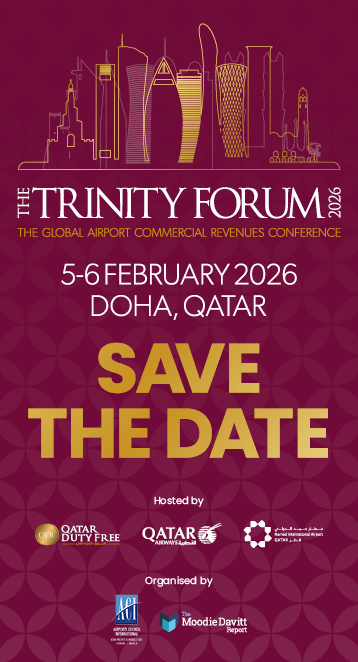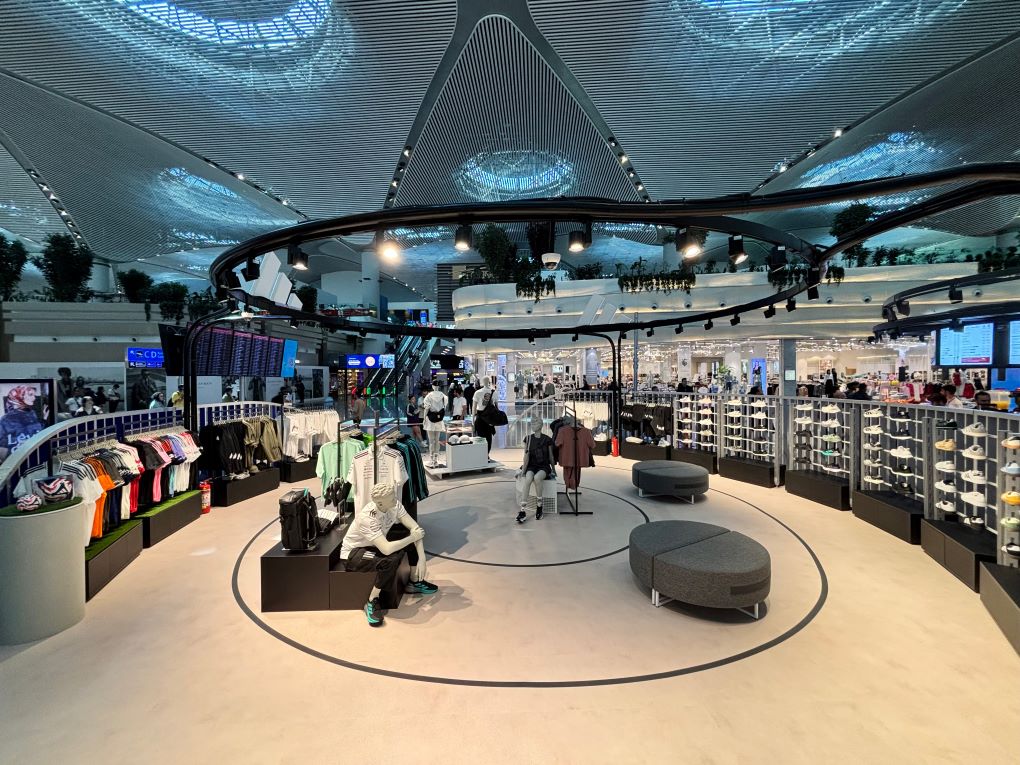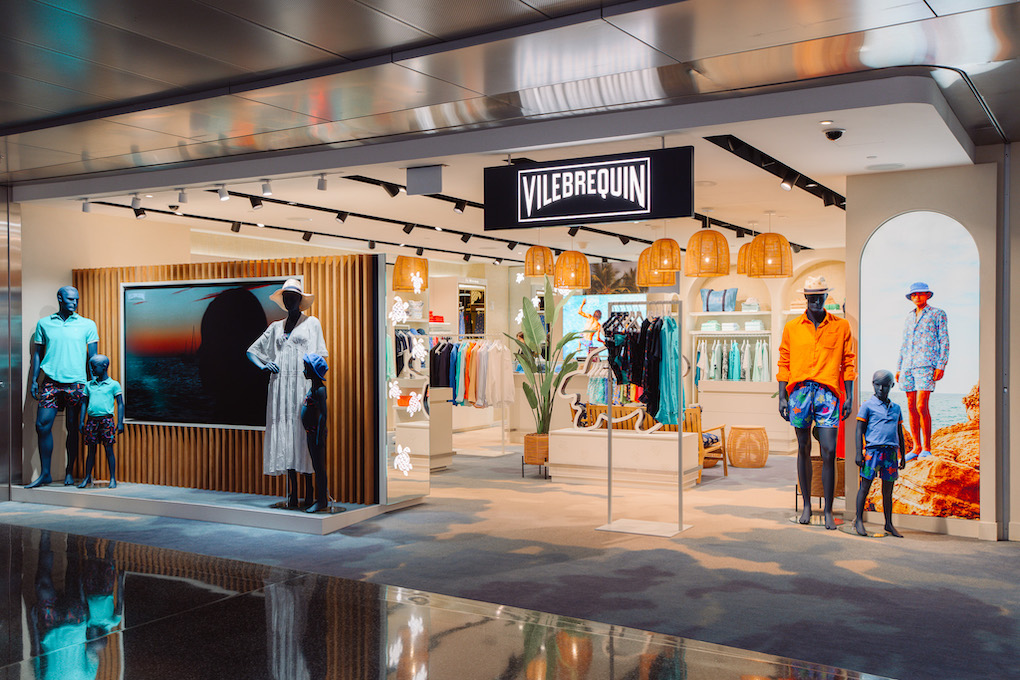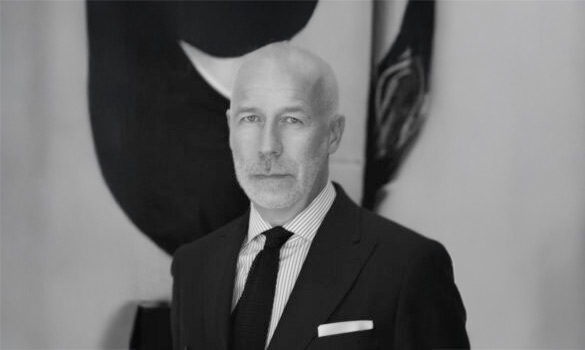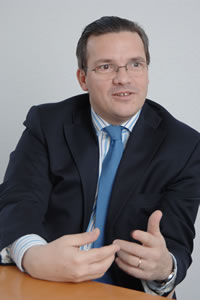 |
“Even if passengers drop by as much as -20%, you still have people who are flying, you still need to attract them into the shops, and you still need to sell to them“ |
Jean-Paul Bonnel CEO The Nuance Group Europe |
Editor’s Introduction: It’s been a year in the fast lane for The Nuance Group’s European division and for its CEO Jean-Paul Bonnel. The past 12 months have seen the company’s rapid expansion in the French travel retail market, via a ground-breaking joint venture with Aéroports de Paris, a move paralleled by the group’s growing footprint at French regional airports such as Toulouse.
Germany, too, has been a vital growth market, through fashion & accessories contracts at Hamburg, Cologne/Bonn and Düsseldorf airports. Nuance has also managed to consolidate key existing businesses: its recent contract renewal at Geneva Airport provides a platform for growth at a location that is being transformed through substantial commercial investment, while its Portuguese joint venture Lojas Francas de Portugal is also set to reap the benefits of an extended tenure at that country’s key airport locations.
In this special feature, Jean-Paul Bonnel tells Dermot Davitt about Nuance Europe’s new and consolidated operations, about the challenges of trading amid the downturn, and about how Nuance’s category approach has moved from “selling products” to “telling stories”. And crucially, he argues that a more enlightened “˜Trinity’-style approach to industry relationships offers a roadmap for the future of the business.
The Moodie Report: Let’s begin with the crisis affecting the regional and global economy and the aviation business – how do you assess the impact on Nuance’s European operations to date?
Jean-Paul Bonnel: It’s no secret that things have been very difficult. Whether you talk about travel retail or any other industry, this is a deep crisis. Specific to our industry there are two issues that are hitting us and hitting us hard. One is the drop in passengers, which has been at single digits in the best cases, and by double digits in the worst cases.
Second, per passenger spend among certain nationalities in certain destinations has fallen sharply. It’s a double hit: fewer people travelling, and those that are travelling are spending less.
We are seeing it everywhere – and we saw it already last year – notably in those holiday destinations frequented by UK and Russian passengers. The British traveller has of course been hit too by the weaker Pound so that’s an added factor. But it’s been across the board, and I don’t see any airport reporting positive information about either passengers or spends.
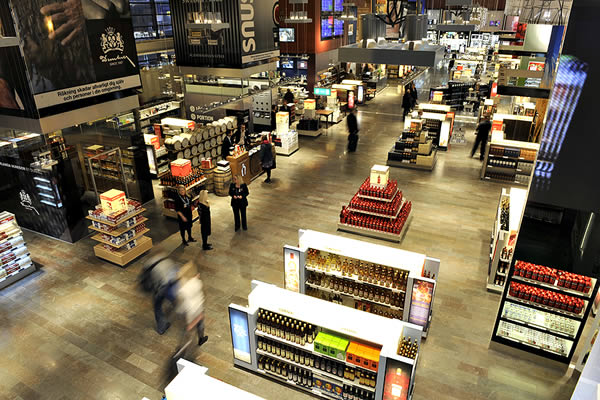 |
Cost control on the one hand, and the ability to drive conversion on the other, are the twin ‘levers’ available to travel retailers during the current crunch (Pictured is Nuance’s Stockholm-Arlanda T5 megastore) |
What kind of measures are you as a company taking to offset the worst impact of the crisis? How are you focusing on the key drivers of penetration and spend, even as traffic is falling in many places?
There are two levers that are in our hands. There’s the age-old element of cost control. You remove the “˜nice to do’ elements and you keep the “˜need to do’ elements. That’s the case at every level – at shop level you review your opening hours, the number of people on the shop floor, all the basics that any good operator would do. Then in terms of generating sales it’s really about pushing conversion. Because even if passengers drop by -20%, you still have people who are flying, and you still need to attract them into the shops, and sell to them.
Our view is to keep things simple. Every promotion has to be run efficiently and simply in this climate. Let’s have no complex mechanisms and let’s make things as clear as possible so the customer understands that we still offer value.
Is that a different approach than you would have employed, say, a year ago?
Yes. People are looking at the money they are spending, there is no doubt about that. Money is tight. A year ago you could have looked at carrying a far wider assortment. We have always been focused in our promotional strategy but now we have an extra focus on our key items, on the entry price points and we try to simplify the promotions more. The type of promotion where you said “˜Buy X and you get a discount on Y or Z’ doesn’t work any more. It’s about simple, straightforward messages.
We have said we’re going “˜back to basics’. Focus on your customers, and make it simple for them. That’s the key.
That’s the approach to the consumer. The flipside of that is the industry relationships. How can your relationships with your airport partners and your key vendors develop so that you emerge stronger once the crisis passes?
What I can see is that the airports are now really aware of the impact of the recession on them. There is a general understanding that if you talk “˜partnership’ and you want a medium to long-term approach, then things have to change to create that “˜win-win’ situation.
I’d say that’s especially the case where you have fashion & accessories for example, and in core categories to a lesser extent. The mechanism behind the partnerships has to be very different in the most vulnerable of categories, among which I would count fashion & accessories today. This is where customers will cut their spending even further in this climate.
It’s an environment in which it’s difficult to trade. For example the service element needed to trade Hugo Boss or Bvlgari or Hermès is much greater than it is to sell liquor. So your investment is higher and in a downturn you feel the pinch. That means the emphasis falls on your relationships with your airport landlords and your vendors. It’s a “˜Trinity’ issue, where all three parties need to collaborate, or you can very quickly destroy the progress that has been made in growing these categories over many years.
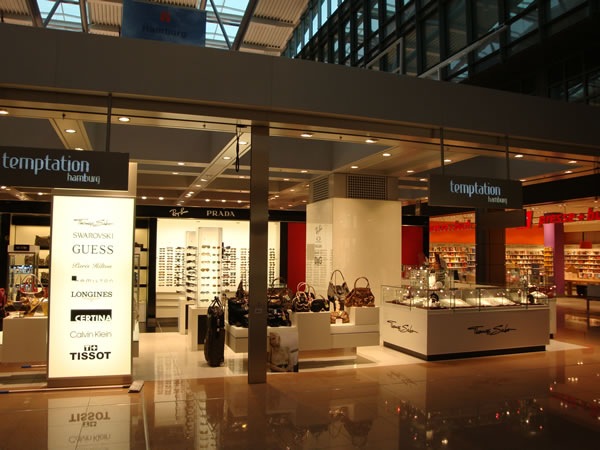 | |
Nuance’s opening at Hamburg Airport is one of a number of breakthroughs achieved over the past year | |
How optimistic are you that change will come – and what will it take from each party to achieve that?
Internally as a retailer we can focus aggressively on how we manage categories such as fashion & accessories, in terms of the cycle of the product and the stock. Then, through the relationship with the vendors, we need to assess how we can share the risk a bit more. Then we can go to the landlords, and say “˜we are in an unprecedented downturn, let’s be imaginative around the deals we can put together’ to preserve long term value.
The straight concession fee or MAG concept is becoming more obsolete in these times. If you talk partnership, the joint venture approach makes a lot of sense to me. Then you have a commitment from the landlord that doesn’t apply under any other model.
But you don’t have to take it to the level of a JV in each case. I think the JV has a lot of merits and makes sense, but it’s really about realising that we are in tough times, and the old model is very short-termist. There are other ways to create deals that involve better sharing of the risks and the rewards. There is not much I can do about passenger numbers, or about the falling levels of disposable income they bring to the airport. But I can still do my job as a retailer within those constraints, and it is here that the landlord has a role to play in helping me do that.
One of the locations where both concessionaire and airport are investing is at Geneva, where you renewed your duty free contract recently. What is the significance of that, and what will see in terms of changes to the business?
Geneva is a very important, strategic contract because it’s in our home territory. As you know the airport is going through a massive upgrade, including an expansion and a centralising of security, and we’re going to be part of that project with a bigger, better store, one that will grow in size from 435sq m to 610sq m.
That extra space is vital. Today the store is too small and too tight. What this new space will allow us to do is to bring more and better elements to the existing ranges, and introduce that treatment of categories that we began at Stockholm-Arlanda last year. So we’ll extend perfumes & cosmetics, we’ll be going into wines in a bigger way, we’ll have the opportunity to uplift the liquor range, but importantly, beyond all of that we’ll also bring more comfort to the shopping experience.
What that means is that we’ll improve visibility, we’ll make the cashing out experience easier, and we’ll bring in a range of new services for the consumer. Those will feature both in Arrivals and Departures, and they’ll focus around Switzerland as a destination, where we’ll collaborate with the Swiss tourism authorities. We also want to work on a stronger pre-order service. We want to pamper our high-end passengers more, with some additional personalised services for the lounges. And we’re even looking at a loyalty programme for passengers travelling between Geneva and Zurich.
 | |
A taste of Portugal: Lojas Francas de Portugal’s contract extension will be followed by major store investment | |
Notably, your JV in Portugal has also landed a significant extension – what kind of investment and changes to the business will we see there?
Portugal is a very important country for us and I was delighted we could secure the extension of the contract. There is still some uncertainty about the new airport in Lisbon, so against that backdrop it’s positive that we have gained an extension.
There will be many changes at Lisbon Airport that will improve retailing there. The airport authority ANA is already investing heavily in enhancing the passenger facilities, and we will be part of that with a major renovation coming soon.
There are also plans for Faro but most probably these will be re-scaled in the current situation. At Porto we extended some shops last year already, and we have the Azores too, where we have also invested in improving the retail.
 | |
Nuance at Cologne/Bonn Airport: “For us, it was a case of entering the market through fashion and getting a foothold in Germany,” says Bonnel. “And we plan to make the most of that opportunity.” | |
How significant were your first moves into the German airport market – at Hamburg, Cologne/Bonn and Düsseldorf – and what’s the potential there?
Fashion & accessories have been among the fastest-growing categories in recent years, and in the long term they have a lot of potential. For us, it was a case of entering the market through fashion and getting a foothold in Germany. We plan to make the most of that opportunity, show how well we can run retail operations and assess the opportunities as they arise there.
Fashion & accessories at these airports can be a springboard to other locations and to other categories, but you have to keep in mind that Nuance is first and foremost a core category retailer. But when you are entering the market for the first time, you have to show how well you can perform, and then see what chances come up further down the line.
Fashion & accessories is also the basis for your joint venture with Aéroports de Paris at Charles de Gaulle and Orly. Tell us more about your ambitions for that joint venture.
We’re very happy with the scope of that joint venture. By 2012 we plan to have close to 50 outlets, and may be even more. AdP has a very dynamic approach to retailing today, one that contrasts sharply from the strategy they had previously. You only have to look at the major retail developments that have taken place across the Paris terminals recently to see how different it is.
 | |
“AdP has a dynamic approach to retailing today,” says Bonnel, as the first stores open under the Duty Free Paris alliance | |
What we have achieved so far is a very close collaboration, even down to the ranges and how the operation is run. We have a very strong team in Paris now and they are collaborating closely with AdP, and it’s an excellent relationship.
What does that give you? It gives you an opening into other French airports and other opportunities, though we will obviously look at other regional airports differently. If you take Toulouse, we offered the airport a global solution for their retail operations. We’ll operate both core and non-core categories, and with the exception of news & books, and food & beverage, we’ll be operating most of the outlets there.
Moving to one of your major openings of the past year, how would you describe the performance of the new megastore at Stockholm Arlanda since it opened?
This store really has gone from strength to strength. Passenger spend has been growing by double digits in the high 20s, which is terrific in the current climate. And we’re seeing sales growth in absolute numbers too. The customer response has been very good. What will be important is to see what happens once the total area is completed in April. That includes not only the walk-through area, but also all the adjacencies, the mezzanine and the security zone. That will be fascinating to watch, and we hope it will bring additional business to us and to the airport.
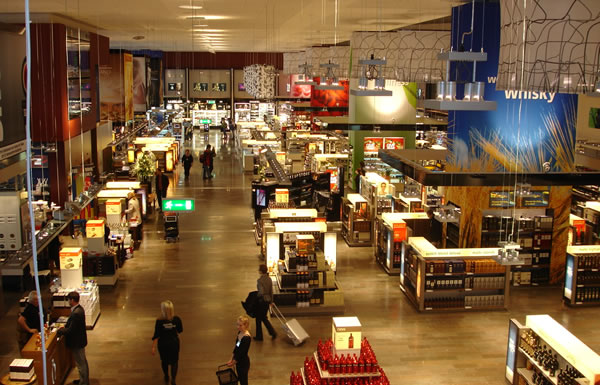 |
Stockholm-Arlanda is the template for Nuance’s new approach to key categories – via its ‘innovative ‘Worlds of’ concepts – and it’s a template that will soon apply at Malta and Geneva airports too |
That store, and in particular the “˜World of’ concepts, will be a template for other developments. What are your ambitions here, and where can we expect to see that approach implemented elsewhere?
The “˜World of’ concepts are really about taking a global approach to key categories. It’s not only about selling products, it’s about education and it’s about the service element around the products. It means that when you put a range together, it should make sense, from the entry price point to the high end, it should cater for all passengers, it should be clear and it should tell a story.
The “˜Worlds of’ concept can be applied anywhere. The first opportunity we had to place it was in Stockholm. The next is in Malta, where from June we will have an expanded store of about 700sq m with a bigger footprint but where the same principles apply.
In Geneva, equally, we took these concepts to the airport in our bid – it’s a case of adapting them to the space and to the local environment. It’s not a cut and paste job – that’s not something you can translate from Stockholm to Malta to Geneva because they are each so different. Plus each one requires their own Sense of Place, which is also a vital part of the concept.
Today our approach is about more than putting products on a shelf. It’s about matching the offer to the local needs, and creating a story around the offer, and making that offer clearly identifiable.
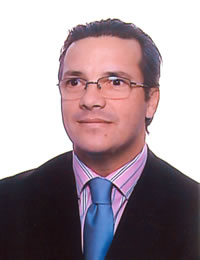 |
“Taking “˜back to basics’ as our motto, it’s about doing everything even better than before.“ |
Jean-Paul Bonnel CEO The Nuance Group Europe |
The market is difficult out there right now – how do you assess the prospects for 2009 and beyond for your business in Europe?
Our aim is to get through 2009 in the best possible way. Taking “˜back to basics’ as our motto, it’s about doing everything even better than before. Since I’ve been here we’ve changed many things, we’ve altered how we work, we’ve pulled the region together, but we’ve also grown a lot. In a growth period you sometimes take short cuts, and then you look back and recognise that it’s time to consolidate.
Today, the economic downturn has added pressure to what we do, but I think we’ll emerge even stronger than previously, with a consolidated business prepared to grow once more. The big question is: how and where can we expand in this climate? It all depends on what opportunities arise, but would we want to go after them? We will, as long as it adds value to the business.
What is going to be the template for Nuance to emerge stronger from this slowdown, better equipped to face the future?
We need to have a relationship with the vendors that enables us to be on the front foot facing our customers. We recognise that the vendors face challenges too: customers’ needs are changing fast and we need to understand those changes better with our brand-owner partners.
And it’s also about ensuring our relationships with landlords get us through 2009 and beyond. And that means working on the format of our contracts so that we can all benefit from the upturn when it comes.
MORE STORIES ON THE NUANCE GROUP IN EUROPE
Nuance returns to net profit but outlook is “˜ominous’ says travel retailer – 27/03/09
Nuance captures vital duty free contract extension at Geneva International Airport – 20/03/09
[comments]









